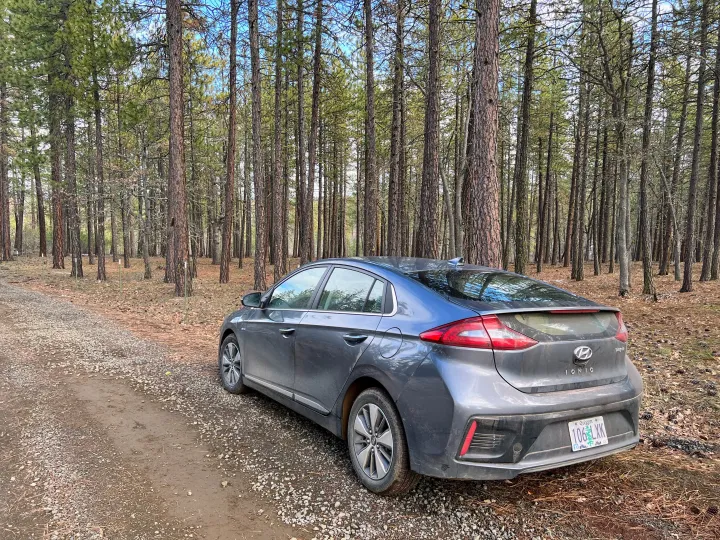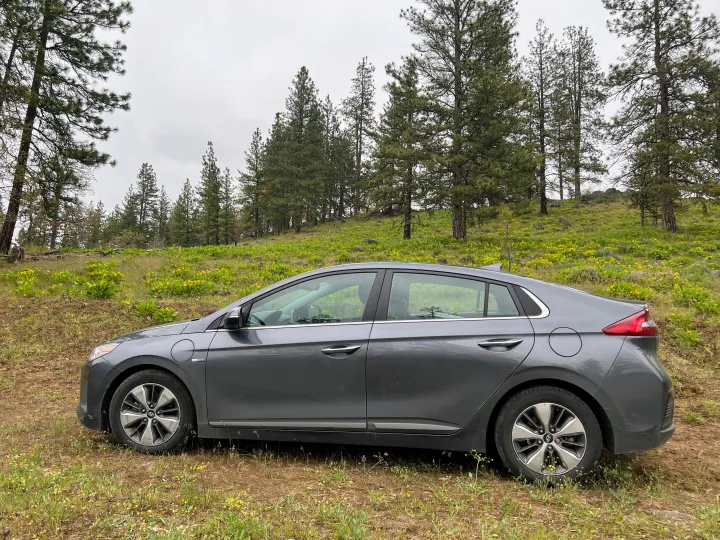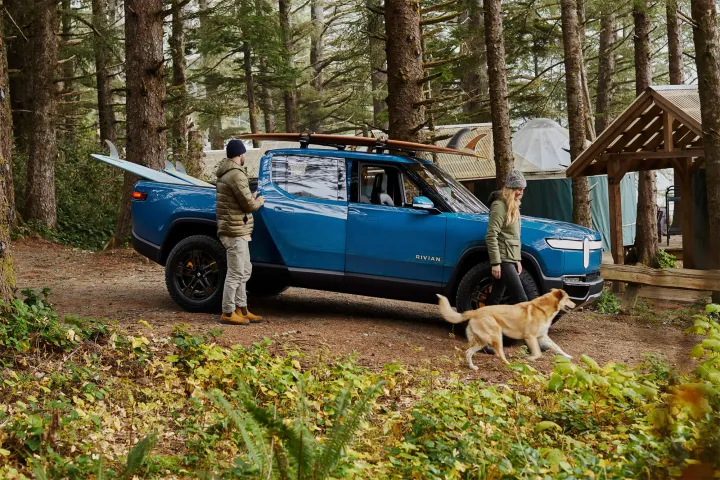
In many ways, my 2019 Hyundai Ioniq PHEV is one of the best purchases I’ve ever made.
Thanks to its 27-mile EV range, my wife and I can drive it for months on end around town without using any gas. Or we can drop everything and drive 10 hours to San Francisco without range anxiety, getting 45 miles per gallon the whole way. It has heated leather seats, room for a week’s worth of luggage and a 100-pound dog in the back, and Apple CarPlay, a feature I never wanted and now can’t live without. The Little Plug-In That Could is the absolute perfect car for us in every regard, except for one little thing.
Sometimes it just doesn’t start.
Small problem, huge inconvenience
We discovered this, inconveniently enough, on a camping trip when it was barely a year old. AAA saved the day after a short hike to cell service, but it was not, as I hoped, a fluke. In fact, it has now happened so many times I’ve lost count, and after purchasing a Noco Boost Plus GB40 jump pack that lives under the passenger seat, I now race my own best jump-start times like the dad changing a tire in A Christmas Story. I have it under a minute.

The cause, a horde of disgruntled Hyundai owners on Reddit have speculated, is a parasitic drain caused by Hyundai’s Bluelink software. It phones home a bit too much, and when you’re out of cell range, it can try aggressively enough to kill your car’s 12-volt battery overnight.
But Redditors seem to have unearthed what Hyundai engineers cannot, because a visit to my dealer for the still-under-warranty car yielded no help whatsoever. The technician couldn’t recreate the problem, so despite my insistence, they shrugged and handed it back. I’m still driving a “new” car that randomly doesn’t start when you press the button. Tales abound on Hyundai forums and comment threads of other owners with the exact same issue.
What good is a 100,000-mile warranty if the backing company can simply decline to honor it because they can’t find the problem?
But it gets worse
If this all sounds familiar, that’s because thousands of other Hyundai and Kia owners are experiencing their own nightmare in the form of easily bypassed security measures that make certain models so easy to steal that it became a TikTok trend. Theft of Hyundais and Kias soared 2,500% in some cities. And for months, Hyundai folded its arms and insisted there was no problem. Only after a class-action lawsuit did Hyundai agree to pay out $200 million to afflicted owners and issue a firmware update in February 2023 that allegedly resolves the issue.
If only it ended there. About 2 million other Hyundais suffer from failing engines that devour oil, to which Hyundai has responded with its now well-practiced shrug. Lawrence Hodge over at Jalopnik owns one of the affected vehicles and managed to get the defective engine replaced, but only after two years of wrestling with Hyundai corporate. Naturally, class-action lawsuits have bubbled up around that one, too.
Without an army of lawyers or the arm twist of a state attorney general, I hold no such hope for a resolution to my own concern. But it shouldn’t take a class-action lawsuit to make you take care of your customers. All cars will eventually have problems, especially with the sophisticated in-car entertainment systems, safety features, and electric drivetrains that we demand in modern vehicles. Stuff happens. But Hyundai has consistently demonstrated it’s not the type of company to clean up its own messes.
It doesn’t have to be this way
Aren’t all car companies like this? Maybe not. My boss recently experienced a nightmare scenario with his Rivian R1S, which completely died on a highway on-ramp when his wife was driving with their kids in the car. They safely rolled to the shoulder, but the truck was completely immobilized.
Rivian should be mortified. And here’s the thing: It is mortified. Support picked up the phone immediately when his wife called, apologized profusely, offered them an Uber to get them home, and took the truck in to resolve it. Apparently, it’s a flaw in the latest firmware, which they’ll be pushing an update to rectify. Other Rivian owners have reported similarly sterling customer service. The company even went so far as buying a truck back at full price when the owner (justifiably) wasn’t satisfied with its performance after 24,000 miles.

Apologies and promises don’t make up for a potentially life-threatening flaw, but they do show the type of company Rivian is, or is at least trying to be. Accountable. Nimble. Quick to act. As a startup, they have no choice: They’re held under the microscope by a car-buying public that isn’t yet convinced of their reliability, and an $80,000 car that just dies without warning isn’t an option for the company. Rivian doesn’t have the luxury of Hyundai’s monolithic stonewalling, and it shows.
Hyundai seems to be taking a cue from the tech industry, which has developed legendary indifference when it comes to customer service. Ask anybody who has been locked out of a Facebook account what it’s like to try to talk to a human at Meta. Or ask fellow owners of my Vizio soundbar, which once received a firmware update that effectively broke it, to which Vizio responded with … well, nothing. It still doesn’t work for a lot of people. As consumers, we’re a lot more fixated on the hottest new thing than whether the hottest new thing from five years ago still works.

I’m going to CES 2024 this year, and I can’t wait to see what Hyundai brings. The company makes exciting cars. The Ioniq 5 has been almost universally lauded as the best new car of the last few years, and Hyundai’s aggressive EV adoption makes Toyota’s efforts look downright embarrassing. I want to love Hyundai.
But every time I have to pop the hood to jump-start my Ioniq, it’s hard to feel much loyalty to the blame-shifting corporate weasels who made it. And if I had to buy a new car tomorrow, there’s no way I could make it another Hyundai.



